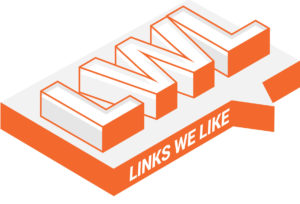LINKS WE LIKE #7

Politics and Governance
- In the Apple Case, A Debate Over Data Hits Home -Michael D. Shear, David E. Sanger, and Katie Benner, The New York Times (@shearm) (@SangerNYT) (@ktbenner)
In the months since the Apple and F.B.I legal battle over the court order to hack into the iPhone used by a gunman in the San Bernardino attack, Americans are deeply divided over the question of if Apple should cooperate with the law. As the conflict between Washington and Silicon Valley becomes more heated, the result of the conflict will be a major turning point in government surveillance.
- Don’t Post About Me on Social Media, Children Say -KJ Dell’Antonia, The New York Times (@KJDellAntonia)
New research has surfaced about the relationship between parents, their children, and social media: children are more concerned than their parents about the ways their parents shared their children’s lives online. Finding the right balance between a parent’s right to share and a child’s right to privacy is an important concern in respecting a child’s digital identity.
Climate Change and Resilience
- Researchers Find the Tipping Point Between Resilience and Collapse in Complex Systems -Thea Singer, Northeastern University News
Network scientists have discovered a new tool to identify weather systems and predict tipping points in complex systems. The team from Northeastern hopes that their discovery will help to realize parameters relevant to a system’s resilience and through the use of statistical physics, detect early warning signs in a system to prevent collapse.
Data Ethics and Literacy
- Unlocking Blockchain for the Underbanked - Jackie Hyland, TechCrunch (@jackie_hyland)
Blockchain has emerged as a useful tool for financial inclusion and provides cheaper and quicker financial services to those excluded from their local financial systems. Blockchain offers promising potential to change access to financial services through increasing price transparency in remittances, enhancing property rights, and affording digital identities to those who lack verifiable identification.
- Using Behavioral Big Data for Public Purposes: Exploring Frontier Issues of an Emerging Policy Arena - Rohan Samarajiva, Sriganesh Lokanathan, LIRNEasia (@samarajiva) (@sriganeshl)
This report analyzes the privacy issues implicated in using behavioral Big Data for public purposes, specifically the issues of marginalization, exclusion, and discrimination. As research on Big Data supplements old methods of analysis of effective public policy, typically analysis of information from NSOs, it is important to consider the new challenges that Big Data presents.
- Ebola: A Big Data Disaster - Sean McDonald, The Center for Internet & Society (@McDapper)
McDonald’s study explores the privacy and property challenges in coordination of unregulated use of call detail records (CDRs) for humanitarian efforts during health emergencies like the Ebola outbreak in West Africa. Usually used for migration analysis and contact tracing, collection and transfer of CDRs and personally identifiable data pose legal risks that need to be addressed.
Funder and Partner News
- MIT Media Lab’s Journal of Design and Science Is a Radical New Kind of Publication - Liz Stinson, Wired (@Lizstins) (@WIRED)
MIT Media Lab has recently launched a new journal, the Journal of Design and Science (JoDS), to promote antidisciplinary work, or work that requires its own framework and methods and does not fit easily into any existing academic disciplines. With no anonymized peer-review process, the Journal and its contents are open and editable, promoting a “peer-to-peer” review.
Research Affiliate News
- Mobile Data Sharing in Emergencies- Consent, Care and Control - Linnet Taylor (@linnetelwin)
Taylor expands upon Sean McDonald’s recent paper entitled “Ebola: A Big Data Disaster,” stressing the importance of consent of data-sharing during humanitarian emergencies. As disasters like Ebola usher in a context of urgency, the legality and practicality of consent without purpose limitation poses ethical considerations for governments and mobile operators.


![M002 - Feature Blog Post [WEB]](https://datapopalliance.org/wp-content/uploads/2025/10/M002-Feature-Blog-Post-WEB.png)





